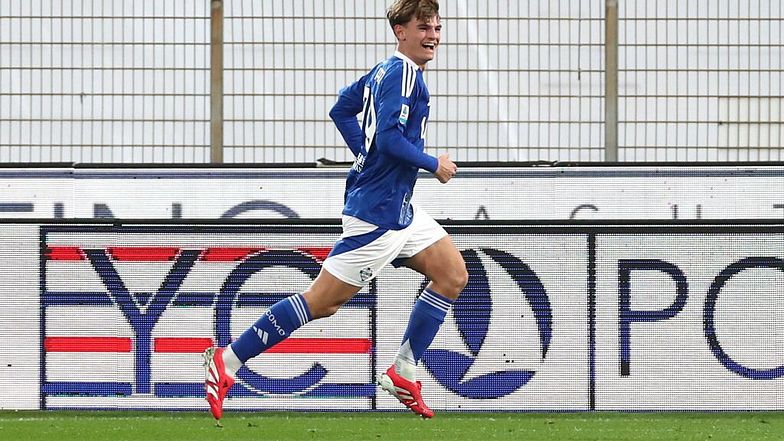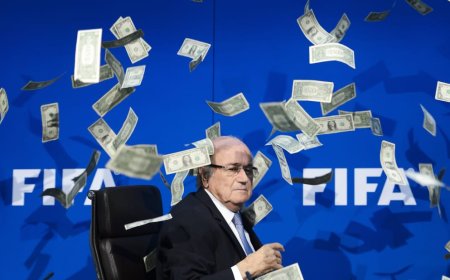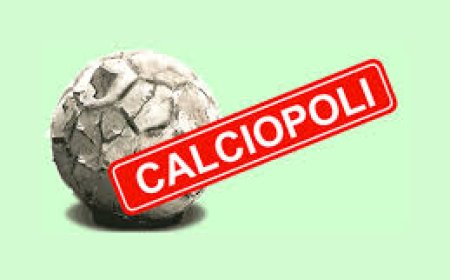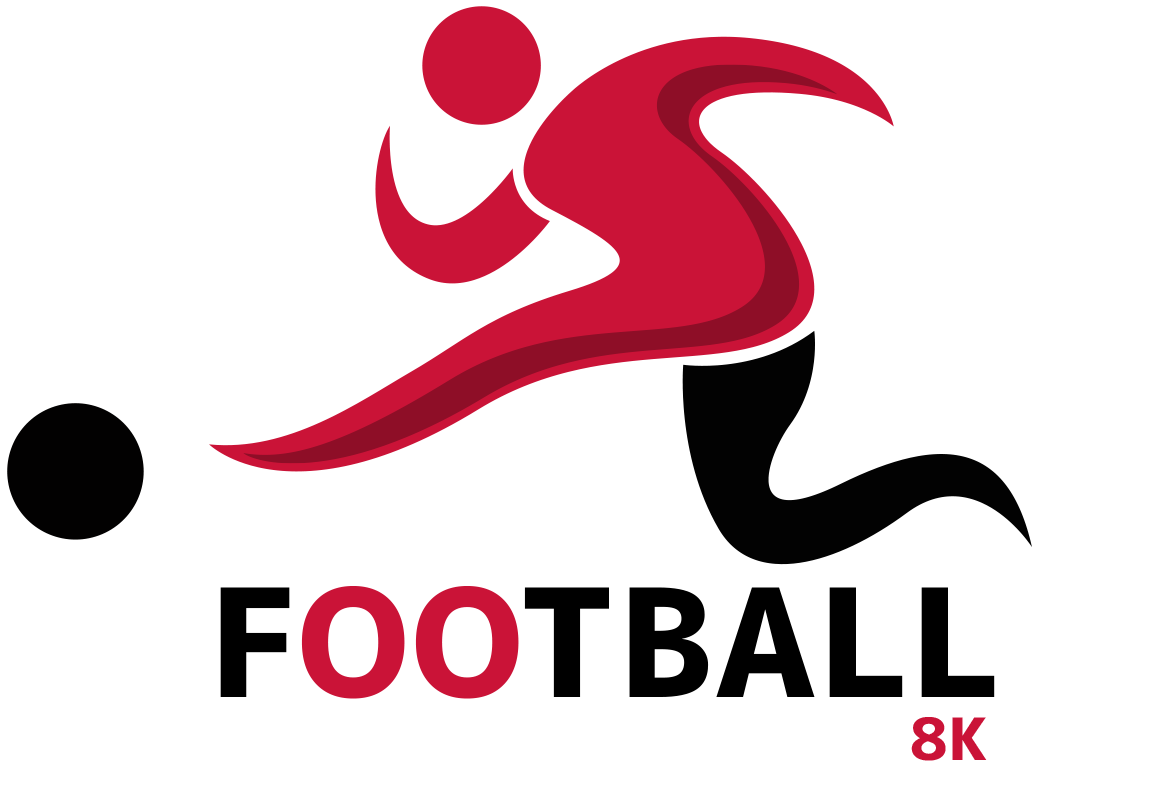CALCIOPOLI: INTER’S ROLE IN THE SCANDAL THAT SHOOK ITALIAN FOOTBALL
An Investigative Report on the Manipulation Behind Italy’s Biggest Football Scandal
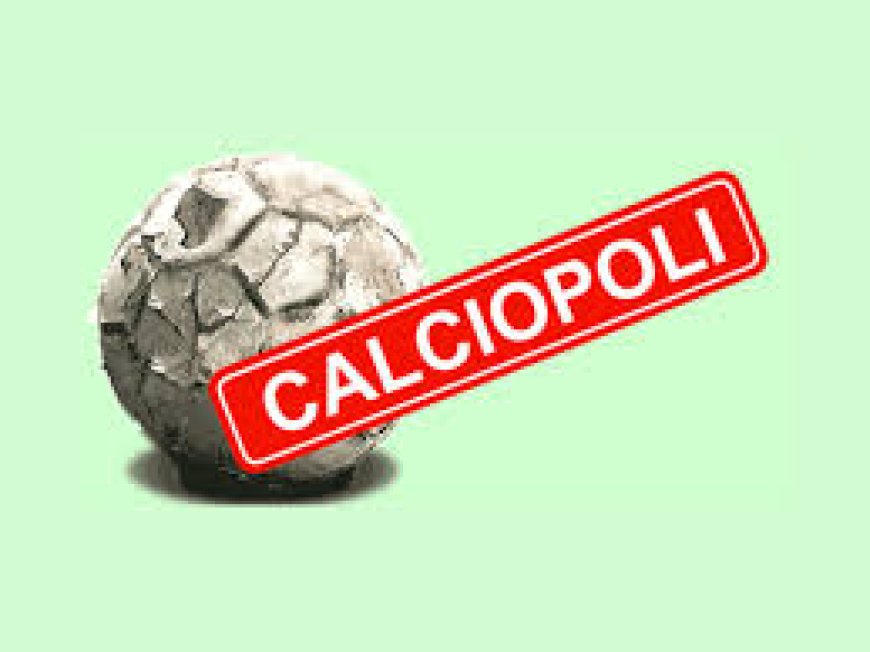
Introduction
In 2006, Italian football was rocked by one of the biggest scandals in its history: Calciopoli. Initially presented as a vast corruption network orchestrated by Juventus and its then-general director, Luciano Moggi, the scandal resulted in Juventus’ forced relegation to Serie B, docked points for AC Milan, Fiorentina, Lazio, and Reggina, and significant reshuffling within the Italian football hierarchy.
However, one club remained untouched throughout the scandal—Inter Milan. Not only was Inter not investigated, but they were also awarded the 2006 Scudetto, a title that had belonged to Juventus. Over time, new evidence and wiretaps have suggested that Calciopoli was not merely a scandal of corruption, but rather a carefully orchestrated attack—one that benefitted Inter Milan more than any other club.
This report investigates Inter’s role in the scandal, analyzing how selective prosecution, media manipulation, and hidden evidence allowed them to emerge as the primary beneficiaries of an event that reshaped Italian football.
1. Background of Calciopoli: Italian Football Before the Scandal
The Pre-2006 Power Struggle in Serie A
Before Calciopoli, Italian football was dominated by Juventus and AC Milan, both on the field and in administrative influence.
- Juventus, led by Luciano Moggi, Antonio Giraudo, and Roberto Bettega, was the most successful team in Serie A.
- AC Milan, under Silvio Berlusconi and Adriano Galliani, had strong institutional ties and European success.
- Inter Milan, owned by Massimo Moratti, consistently underperformed despite heavy spending.
From the mid-1990s to 2006, Inter had spent hundreds of millions on top players (e.g., Ronaldo, Vieri, Recoba) but failed to win a single Serie A title. This frustrated Moratti, who believed Juventus and Milan had unfair advantages due to their connections with referees and football officials.
The Rise of Luciano Moggi and Juventus’ Dominance
Luciano Moggi, Juventus’ general director, was known for his influence over Italian football. While he was widely respected for his transfer market skills, he was also accused of manipulating referees through a complex network of relationships.
However, Juventus’ success wasn’t solely due to off-field influence:
- The club had one of the best squads in Europe, featuring players like Del Piero, Buffon, Nedved, Trezeguet, Ibrahimović, and Cannavaro.
- They won multiple Serie A titles and reached the Champions League final in 2003.
Inter, on the other hand, failed to capitalize on its investments and remained trophyless in Serie A from 1989 to 2006.
The Tension Between Juventus and Inter
By 2005, tensions between Juventus and Inter were at an all-time high:
- Juventus accused Inter of trying to manipulate public perception by portraying themselves as victims of an unfair system.
- Inter accused Juventus of controlling Italian football through Moggi’s influence.
- Moratti sought a way to dismantle Juventus and shift power toward Inter.
The stage was set for a major scandal—one that would forever alter the balance of power in Italian football.
2. The Selective Nature of the Calciopoli Investigation
How the Investigation Began
The Calciopoli scandal was triggered by a wiretapping operation conducted by Italian authorities in 2005. The investigation focused on conversations between club executives and refereeing officials, with the aim of uncovering undue influence over referee appointments.
However, from the very beginning, the investigation was flawed, as it focused exclusively on Juventus, AC Milan, Fiorentina, Lazio, and Reggina, while ignoring evidence that Inter Milan was engaged in the same practices.
The Focus on Juventus
The intercepted conversations revealed that Juventus' director, Luciano Moggi, was in regular contact with referee designators Paolo Bergamo and Pierluigi Pairetto. The prosecution argued that these conversations demonstrated an attempt to manipulate referee appointments in Juventus’ favor.
Key wiretaps included:
- Moggi discussing the assignment of referees before matches.
- Juventus officials expressing preferences for certain referees.
- Indications that referees who performed poorly were “punished” by not being assigned important matches.
Based on these conversations, Juventus was accused of creating a system of influence over referees—leading to the club’s relegation, the revocation of their 2005 and 2006 Scudetti, and bans for multiple officials.
However, what was not initially revealed was that Inter Milan executives had also engaged in similar behavior—but their wiretaps were conveniently ignored during the investigation.
How Inter’s Wiretaps Were Hidden
In 2010, previously undisclosed wiretaps emerged that revealed that Inter’s president Giacinto Facchetti had also been in contact with the same referee designators (Bergamo and Pairetto).
The wiretaps included:
- Facchetti explicitly requesting certain referees for Inter’s matches.
- Discussions about rewarding referees who had been favorable to Inter in previous games.
- The same type of conversations for which Juventus had been punished.
Key Example: The Facchetti-Bergamo Wiretap (2004)
One of the most damning conversations was between Inter president Giacinto Facchetti and referee designator Paolo Bergamo in 2004.
➡️ Facchetti (Inter President): "For this match, we need someone strong, someone who understands what’s at stake."
➡️ Bergamo (Referee Designator): "I understand, Giacinto. I’ll see what I can do."
This is almost identical to the conversations that led to Juventus’ punishment.
Yet, while Juventus was relegated and stripped of titles, Inter was not only spared from investigation but awarded the 2006 Serie A title.
Selective Prosecution: Why Was Inter Not Punished?
The decision to ignore Inter’s wiretaps was not accidental—it was part of a selective prosecution strategy that focused entirely on Juventus and its allies, while ensuring that Inter benefited from the scandal rather than being implicated in it.
Key reasons why Inter avoided punishment:
-
The Media’s Role:
- The Italian press, especially La Gazzetta dello Sport, pushed the narrative that Juventus was the sole culprit.
- Newspapers that were traditionally pro-Inter helped shape public opinion against Juventus.
-
The Influence of Guido Rossi:
- The 2006 title was awarded to Inter by Guido Rossi, a former Inter board member—raising major conflict-of-interest concerns.
- Rossi resigned from his position at Inter just before being appointed as the special commissioner of the FIGC, allowing him to oversee the scandal’s outcome.
-
Judicial Bias:
- When the new wiretaps were discovered in 2010, prosecutors refused to re-open the case, citing the “statute of limitations.”
- Despite clear evidence of wrongdoing, Inter was never formally investigated.
3. Why Were Certain Wiretaps Ignored?
The Hidden Evidence: How Inter Was Shielded from Investigation
By 2006, the Italian media had already framed Juventus as the central villain of Calciopoli, and the FIGC's investigation reflected this bias. However, in 2010, a set of previously ignored wiretaps emerged, revealing that Inter Milan had also engaged in similar activities—but these calls were omitted from the official investigation.
These revelations raised serious questions:
- Why were Juventus’ wiretaps used as evidence while Inter’s were ignored?
- Who decided which wiretaps were relevant?
- Did Inter have powerful connections within the FIGC and the legal system?
The answer to these questions points to a coordinated effort to protect Inter while dismantling their rivals.
The Role of Telecom Italia and Inter’s Hidden Influence
The wiretaps that initiated Calciopoli were conducted by Telecom Italia, a company with strong links to Inter Milan’s president, Massimo Moratti.
Key connections:
- Carlo Buora, a former vice president of Inter Milan, was also a high-ranking executive at Telecom Italia.
- Telecom Italia played a key role in handling the wiretap operations and determining which recordings were handed over to prosecutors.
- The company provided only a selective portion of the intercepted calls, ensuring that Juventus' calls were exposed while Inter's were buried.
This raises a serious conflict of interest, as Inter effectively had direct influence over the flow of evidence used in the investigation.
Wiretaps That Were Ignored: The Facchetti Calls
The 2010 revelations included intercepted conversations between Inter Milan president Giacinto Facchetti and referee designator Paolo Bergamo, showing clear evidence of favoritism and referee selection—exactly what Juventus was punished for.
Example 1: Facchetti Requesting a Referee Favorable to Inter (2004)
➡️ Facchetti (Inter President):
"For this match, we need someone strong, someone who understands what’s at stake."
➡️ Bergamo (Referee Designator):
"I understand, Giacinto. I’ll see what I can do."
Analysis:
- This is identical to the conversations Moggi had with referee designators, yet only Juventus was punished.
- The fact that Bergamo assured Facchetti that he would "see what he could do" indicates that there was a system of influence beyond Juventus' control.
Example 2: Facchetti Complimenting Referees After a Favorable Inter Match
➡️ Facchetti (Inter President):
"That was excellent, Paolo! I told you we needed the right man for the job, and he did perfectly!"
➡️ Bergamo (Referee Designator):
"I knew you’d be satisfied, Giacinto. We always try to do the best for football."
Analysis:
- Facchetti explicitly praises Bergamo for assigning a referee that benefited Inter.
- If Moggi had been caught saying this, Juventus would have faced additional penalties.
- The fact that these wiretaps were hidden in 2006 proves that the investigation was selectively built to target only Juventus.
4. Judicial and Media Bias: How Inter Was Protected
The Role of the Italian Football Federation (FIGC) in Protecting Inter
The FIGC was responsible for overseeing the disciplinary actions in the aftermath of Calciopoli. However, the appointment of Guido Rossi as the special commissioner of the FIGC in 2006 raised serious ethical concerns:
- Guido Rossi was a former Inter board member.
- He was put in charge of deciding the fate of Juventus, Milan, and other clubs.
- Rossi personally pushed for the 2006 Scudetto to be awarded to Inter, despite the club having no legal claim to it.
How the Scudetto Was Awarded to Inter
- Juventus was stripped of its 2005 and 2006 titles.
- The 2005 title was declared void, but the 2006 title was given to Inter.
- There was no legal precedent for awarding a title to a club not involved in the scandal.
Conflict of Interest
- Rossi had previously worked with Inter and had close ties to Massimo Moratti.
- He resigned from his role at Inter shortly before taking over at the FIGC, raising suspicion that he was placed in the position to benefit Inter.
- Instead of declaring the 2006 season null and void, he handed Inter a free title—despite later evidence showing they were also involved in similar behavior.
Media Manipulation: How Public Opinion Was Turned Against Juventus
The Italian media played a crucial role in shaping the narrative of Calciopoli. Major newspapers like La Gazzetta dello Sport, Corriere dello Sport, and Tuttosport played different roles in covering the scandal, with La Gazzetta dello Sport leading the anti-Juventus agenda.
1. Selective Reporting of Wiretaps
- The media heavily covered the Juventus wiretaps, publishing transcripts daily.
- Inter’s wiretaps were ignored or dismissed as irrelevant, despite being of the same nature.
- This created a false perception that only Juventus was engaged in referee selection.
2. Public Shaming of Luciano Moggi and Juventus
- Luciano Moggi was portrayed as the mastermind of corruption, while Massimo Moratti was treated as a victim of an unfair system.
- Juventus players were attacked by the press, with many being pressured to leave the club.
- Fans were manipulated into believing that Inter was the only “clean” club in Italy.
3. Post-Calciopoli: The Media’s Silence on New Evidence
- When the new wiretaps involving Inter were revealed in 2010, the media barely covered them.
- Juventus supporters and independent journalists called for a re-examination of the case, but major newspapers avoided the topic.
- The media continued to support the narrative that Juventus was guilty and Inter was the rightful heir to Italian football dominance.
5. The Aftermath: How Inter Benefited from Calciopoli
Juventus’ Collapse and Forced Relegation
Before Calciopoli, Juventus was the dominant club in Italian football, boasting one of the best squads in Europe. However, after the scandal:
- Juventus was relegated to Serie B, forcing them to rebuild from scratch.
- They were stripped of two league titles (2005 and 2006), erasing years of dominance.
- Key players like Ibrahimović, Cannavaro, Thuram, and Vieira left, weakening the squad significantly.
- Luciano Moggi, Antonio Giraudo, and other Juventus executives were permanently banned from football.
This left a power vacuum in Serie A, allowing Inter to rise uncontested.
Inter’s Unprecedented Dominance (2006-2010)
With Juventus dismantled and AC Milan weakened, Inter suddenly became the dominant force in Italian football, winning five consecutive Serie A titles (2007-2011).
Inter’s Post-Calciopoli Titles
🏆 2006 – Awarded the Scudetto without playing
🏆 2007 – Won Serie A uncontested
🏆 2008 – Won Serie A with weakened competition
🏆 2009 – Continued dominance in weakened league
🏆 2010 – Historic Treble (Serie A, Coppa Italia, Champions League)
Inter’s historic treble-winning season in 2010 would not have been possible without Calciopoli, as it eliminated their strongest domestic rivals.
Massimo Moratti’s Long-Awaited Victory
For years, Massimo Moratti had been frustrated by Inter’s inability to win Serie A titles. However, thanks to Calciopoli:
✔️ Inter was suddenly the strongest club in Italy.
✔️ Their biggest rivals (Juventus and Milan) were weakened or penalized.
✔️ They won a "paper Scudetto" in 2006 without competition.
✔️ By 2010, they completed a historic treble, something they couldn’t have achieved in a competitive Serie A.
Moratti’s failure on the pitch was ultimately corrected through off-field maneuvering.
6. New Evidence and Re-evaluation of the Scandal
The 2010-2011 Wiretap Revelations: Inter’s Hidden Guilt
In 2010, new wiretaps emerged that had been previously ignored during the original Calciopoli investigation. These recordings revealed that Inter officials, including club president Giacinto Facchetti, had engaged in the same referee manipulation practices as Luciano Moggi and Juventus.
These revelations prompted renewed calls for a re-evaluation of the scandal, with Juventus demanding that Inter’s actions be investigated and that the 2006 title awarded to Inter be revoked.
Key Findings from the 2010-2011 Investigation
The new wiretaps revealed:
✔️ Giacinto Facchetti directly requesting specific referees for Inter’s matches.
✔️ Referee designators discussing Inter’s requests in the same manner as they did with Juventus officials.
✔️ Evidence that Inter had used its influence to shape the investigation, ensuring that their wiretaps were excluded from the original case.
Despite this, the FIGC refused to take any action against Inter, citing the statute of limitations—a legal technicality that prevented reopening the case despite clear evidence of wrongdoing.
Why Didn’t Inter Face Punishment?
When the new wiretaps surfaced, Juventus and other clubs demanded a re-evaluation of the scandal, arguing that:
- If Juventus was punished for these actions, Inter should be as well.
- If the 2006 Scudetto was awarded to Inter under false pretenses, it should be revoked.
- The investigation was clearly biased, and the entire scandal should be reassessed.
However, the FIGC refused to take action, using the following excuses:
-
Statute of Limitations:
- The FIGC claimed that too much time had passed to punish Inter, even though new evidence had just emerged.
- Juventus was punished retroactively, yet Inter was protected by legal technicalities.
-
Lack of Public Pressure:
- The Italian media barely covered the new revelations, keeping the public unaware of Inter’s involvement.
- Unlike 2006, when Juventus was vilified, there was no media push for Inter to face consequences.
-
FIGC’s Conflict of Interest:
- The same institution that awarded Inter the 2006 Scudetto was now in charge of investigating them.
- It was not in their interest to admit they had made a mistake.
7. Conclusions: Calciopoli as a Strategic Attack
The Real Purpose of Calciopoli: Eliminating Juventus, Protecting Inter
By examining all the evidence, Calciopoli was not simply a scandal about cleaning up football—it was a carefully orchestrated attack designed to dismantle Juventus and elevate Inter Milan to dominance.
✔️ Juventus was the primary target of the investigation.
✔️ Inter Milan, despite being involved in referee influence, was shielded from prosecution.
✔️ The 2006 Scudetto was awarded to Inter without competition, despite later evidence proving their wrongdoing.
✔️ Telecom Italia, with strong links to Inter, played a key role in filtering which wiretaps were handed over to prosecutors.
✔️ The media and FIGC worked together to shape a one-sided narrative that benefited Inter.
Why Was Juventus Targeted?
-
Jealousy and Resentment from Rivals
- Juventus had dominated Italian football for years, winning multiple league titles.
- Inter, under Moratti, had failed to win Serie A for 17 years despite massive spending.
- With Juventus removed, Inter could finally dominate uncontested.
-
Massimo Moratti’s Influence in Italian Football
- Moratti used his influence over the media and FIGC to ensure that Juventus was blamed.
- Inter's wiretaps were buried, while Juventus' were exposed daily in the press.
-
Political and Media Connections
- Guido Rossi, a former Inter board member, was placed in charge of FIGC to oversee the punishments.
- The Italian media pushed an anti-Juventus narrative, ignoring new evidence when it came out in 2010.
The Consequences of Calciopoli
The scandal had long-lasting effects on Italian football:
-
Juventus’ Forced Relegation
- The club lost its best players (Ibrahimović, Cannavaro, Thuram, Vieira) and was forced to rebuild.
- It took years for Juventus to recover, only regaining dominance in 2012.
-
Inter’s Artificial Dominance
- Inter won five straight Serie A titles (2007-2011) in a league that had no real competition.
- Their 2010 Treble was achieved in a weakened Serie A, without Juventus as a competitor.
-
A Damaged Reputation for Italian Football
- The scandal tarnished Serie A’s credibility, causing sponsorship losses and reduced international appeal.
- Italy, once the most prestigious league in the world, lost ground to England and Spain.
Final Verdict: Calciopoli Was a Rigged Scandal
Based on the evidence, Calciopoli was not an anti-corruption operation—it was an anti-Juventus operation.
⚠️ Juventus was selectively targeted while Inter was protected.
⚠️ The scandal was manipulated to benefit Inter Milan, leading to their dominance from 2007 to 2011.
⚠️ The Italian football authorities and media were complicit in reshaping Serie A in favor of Inter.
Had the scandal been properly investigated, Inter would have been punished alongside Juventus, and the 2006 title would not have been awarded to them.
What's Your Reaction?
 Like
0
Like
0
 Dislike
0
Dislike
0
 Love
0
Love
0
 Funny
0
Funny
0
 Angry
0
Angry
0
 Sad
0
Sad
0
 Wow
0
Wow
0
